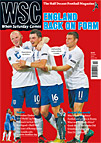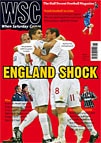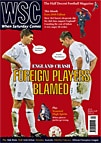 Alex Anderson reflects on the unusual task he has set for himself, of going to watch every team that has reached a European cup final
Alex Anderson reflects on the unusual task he has set for himself, of going to watch every team that has reached a European cup final
I’ve seen 66 of them. That’s exactly two-thirds. There are probably some who’ve seen the lot though. Probably even more, like me, will have realised that “every European finalist” is as worthy of bagging ambition as “every League ground”, “every League champion” and “every club Neil Warnock’s managed”. No doubt, I’ll be far from alone in recognising it as worthy of that kind of on-the-autism-spectrum attention. But when the list hits 100 – and Fulham last season were number 99 – everyone will want a piece.


